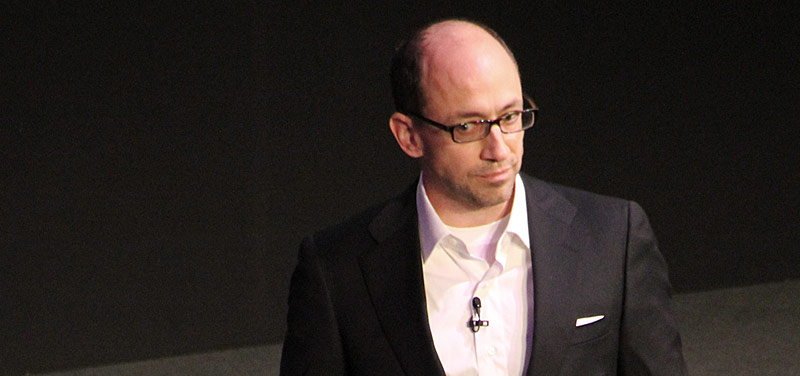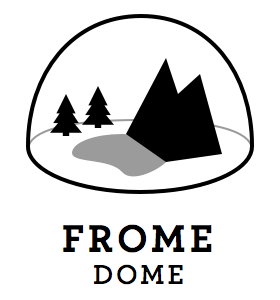7 Things That Could Have Killed Twitter, But Didn’t
Looking back on Twitter’s seventh birthday.

Twitter is observing its seventh birthday today — that is, it’s been 7 years since Jack Dorsey’s stirring “just setting up my twttr” tweet. In Twitter’s celebratory blog post, it says it now has “well over 200 million active users creating over 400 million Tweets each day.”
It’s impressive that Twitter is still here and still doing great — an extremely rare success. Twitter has permeated society on a level that only a small handful of tech companies ever have. And it certainly has had several opportunities to screw up.
Here are seven things that might have killed Twitter, but haven’t. (Yet.)
- Irrelevance. This is what kills most companies — they never get traction in the first place. Imagine if Twitter never moved past “just setting up my twttr”-type tweets. (My first was even worse: “giving Twitter a chance”.) Even the early stereotype lunch-summary tweets were something. Now Twitter is all they talk about on TV. And when’s the last time you left the house without seeing a hashtag printed on something? There is, of course, a good chance that Twitter will fade, à la MySpace, Friendster, AIM, etc. But today, it’s still on the way up.
- Competition. Fage was the first Greek yogurt brand to catch on in the U.S., but Chobani zoomed past and now dominates the market. Twitter was one of many simple message-sharing services, and for years, new competitors were often labeled as “Twitter killers” — from Jaiku and Plurk to Friendfeed and Google Wave. Facebook has copied many Twitter features over the years, and Instagram has arguably captured some of Twitter’s potential. But Twitter still stands solid.
- Infrastructure. The “fail whale” was cute but not funny. Twitter’s flakiness could have cost it dearly.
- Leadership. Twitter has had more than its share of leadership changes, including three CEOs in its 7 years. Luckily, it hasn’t had a bad one yet. Dick Costolo — pictured above — has led Twitter very well since taking over for Evan Williams. Many people disagree with some of his small- or mid-sized decisions, but the big-picture plan seems to be working. Twitter’s business is now real and not a punchline. (Twitter also has the benefit and curse of conducting itself more publicly than pretty much any other company — on Twitter, of course.)
- Acquisition. Twitter has had at least a couple chances to sell out, cash in, and become the obligatory social network for some big, potentially clueless company. As I like to say, “Windows Live Chat Bird”. Few of those acquisitions work very well. YouTube is probably the best-case scenario. But Twitter possibly could have been a Bebo, or a MySpace, or worse — toast. It has been smart, ballsy planning to stay independent. (It has helped that enough people have wanted to buy up Twitter stock over the years, so that shareholders who have wanted to sell theirs could do so without the need for an outright “exit”.)
- Distraction. Twitter has made some small mistakes over the years, and has fixed them. But it hasn’t made any really, really big ones yet. Twitter is shipping. And it has grown its feature set, employee ranks, and user base while staying mostly true to its original concept. There was never a foolish plan — that we know of, I guess — to bump the character limit to 280, or to buy a headphone company, or to start manufacturing Twitter-branded VCRs. Twitter’s acquisitions mostly seem to have gone well, and Twitter even turned on advertising without a revolt. Today with Vine, Twitter is now taking on an extracurricular, but I think it’s complementary enough (and small enough) to be digested. This isn’t to say that Twitter shouldn’t dream big or think of ways to maximize its brand and impact. Something involving Twitter and TV actually probably makes a lot of sense. But it also needs to stay focused on what’s made it work so far. And Twitter has generally done that well.
- Ecosystem. Twitter’s early developer base was broad, pioneering, unique, and proud. For a while, I thought one of Twitter’s best possible business models could be to lightly tax all the transmissions flowing through its pipes, the way AT&T or FedEx does. It has since — correctly, probably — focused on building an advertising-based media business. And it has seized considerable control over its ecosystem, from buying Twitter apps like Tweetie and TweetDeck to tightly restricting what developers can do with their software. The tech press has portrayed this with much drama, for various reasons. And it’s still probably too early to tell how things will eventually shake out — this is an area to watch. But so far, Twitter seems fine.
Anyway, happy birthday Twitter. Enjoy the balloons. Because your next project is to reach a billion users — without people getting bored with this thing.
—Love, @FromeDome.

Check out my new site: The New Consumer, a publication about how and why people spend their time and money.

